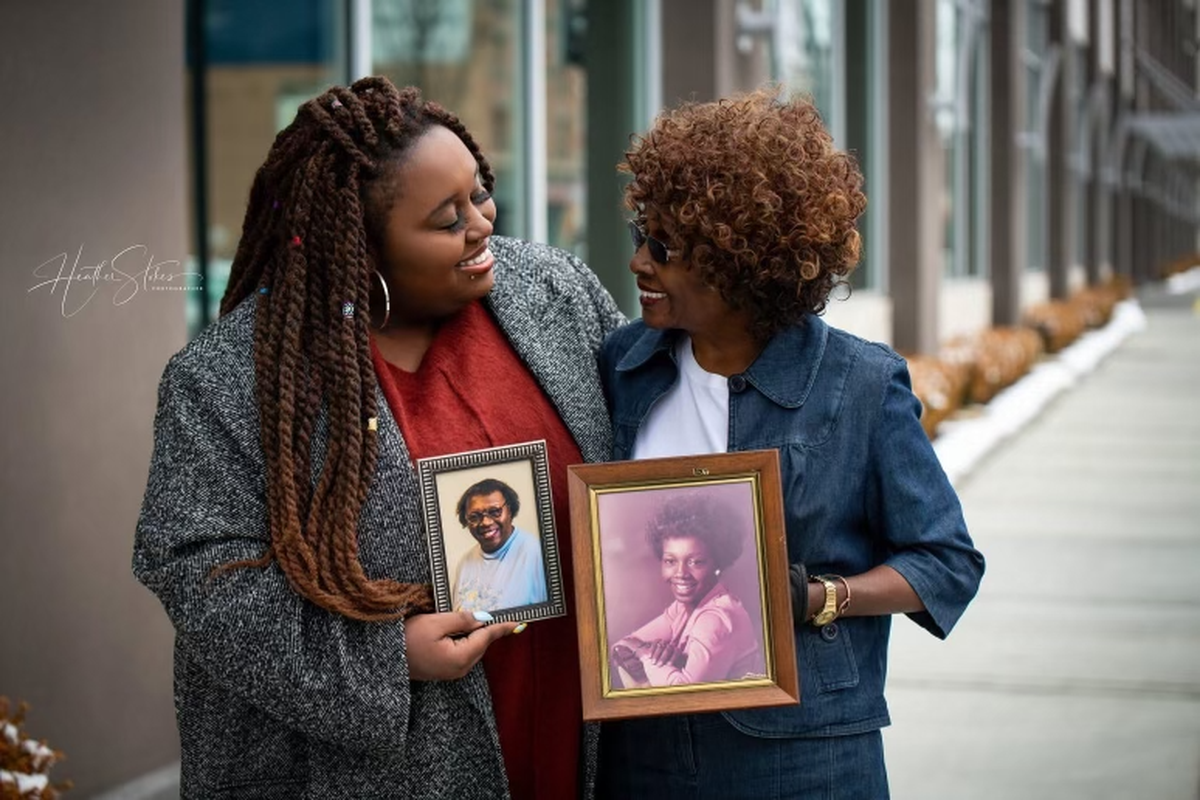The cycle of care is one of life’s most profound exchanges. As children, we are held, guided, and nurtured by our grandparents, and in time, many of us find ourselves returning that care–becoming the hands that steady them, the voices that advocate for them, and the companions who help them walk through life’s later chapters. This grandchild-to-grandparent connection is an inheritance of love. In Grandma’s Hands, April Eberhardt and Alethea Dumas share how caregiving for our elders deepens bonds across generations and shapes the way we understand family, empathy, and care.
ALETHEA DUMAS
Q: How has caring for a grandparent shaped your understanding of family responsibility and deepened your emotional connection across generations?
A: Nurturing is in my bones; however, I have learned that family responsibility isn’t about obligation, it’s an active expression of love. Spending time with my grandmother–hearing her stories, watching her shows with her, singing in the car, and holding her hand as we walked–strengthened my appreciation for the bonds that connect us across generations. I definitely recognize more deeply the wisdom and resilience elders carry, and how much they sacrificed so we could stand where we are.
Q: In what ways do you feel a sense of duty or calling when it comes to supporting your grandparents, and how do cultural or family traditions influence that commitment?
A: I was taught from an early age that honoring our parents, grandparents, and guardians as they grow older is an act of respect and love. It’s part of our cultural fabric, a way of keeping our bonds strong, showing gratitude for the sacrifices made before us, and ensuring that no one is left to walk through life’s later seasons alone. Even though I’ve watched the value of family, the practice of caring for one another, and the nurturing of traditions fade in my own family over the years, I still hold tightly to those lessons. I apply them in the relationships I’ve been blessed with, including with my chosen family, keeping alive the spirit of connection, care, and gratitude first instilled in me by my grandmother.
Q: Looking ahead, how do you think your experiences as a grandchild caregiver will inform how you give and receive care later in life, and what lessons about empathy and reciprocity stand out to you?
A: It’s shown me how empathy develops through small, consistent acts–listening, showing patience, offering comfort. My experiences will guide how I support loved ones in the future from a place of love, not obligation, and how I allow others to support me when I need it–with gentleness, curiosity, and understanding.
APRIL EBERHARDT
Q: Can you share your experience of caring for your grandmother and how it shaped your understanding of family and love?
A: I was in college when my grandmother first began to show strange behavior. She insisted that I get on one of her bank accounts, and at first none of us understood why. Her behavior grew more unusual–she mailed Christmas cards in the summer, mixed up birthdays, caught buses and forgot where she was going. She even hid food in dresser drawers, as if they were refrigerators, and tucked money away in strange places.
Being one of the younger family members, I felt a deep urgency: we had to keep her safe. But as the granddaughter, I ran up against the unspoken pecking order of who got to make decisions. When I finally spoke up, one of my aunts dismissed me as “a little girl”–and I had just graduated college.
Eventually my uncle stepped in as her primary caregiver. Though I moved away, I stayed closely connected with him, supporting from afar. I wasn’t her primary caregiver, but I did her hair, advocated for her when others wouldn’t, and cherished moments when her humor would unexpectedly surface. Over time she lost words, then recognition, and finally even those glimpses of her old self. The silence was heartbreaking.
When I got married and had children, I made sure my kids knew their Grandma Pink through visits, pictures, and videos, even though they didn’t grow up close to her. Living long-distance taught me that caregiving isn’t limited by proximity–it’s about staying connected, informed, and supportive.
My mom and grandmother died about fifteen months apart. We buried my mother’s urn with my grandmother’s body, a symbolic closing of one era and the beginning of another for me as a woman.
Even when my grandmother no longer recognized me, her presence was still a refuge. After my mother died, I went straight from the airport to her nursing home. She could no longer speak, but I sat beside her and held her hands. She was my mother’s mother, but she was also like a mother to me. That moment reminded me that love doesn’t end with memory or speech.
I am she. She is me.
